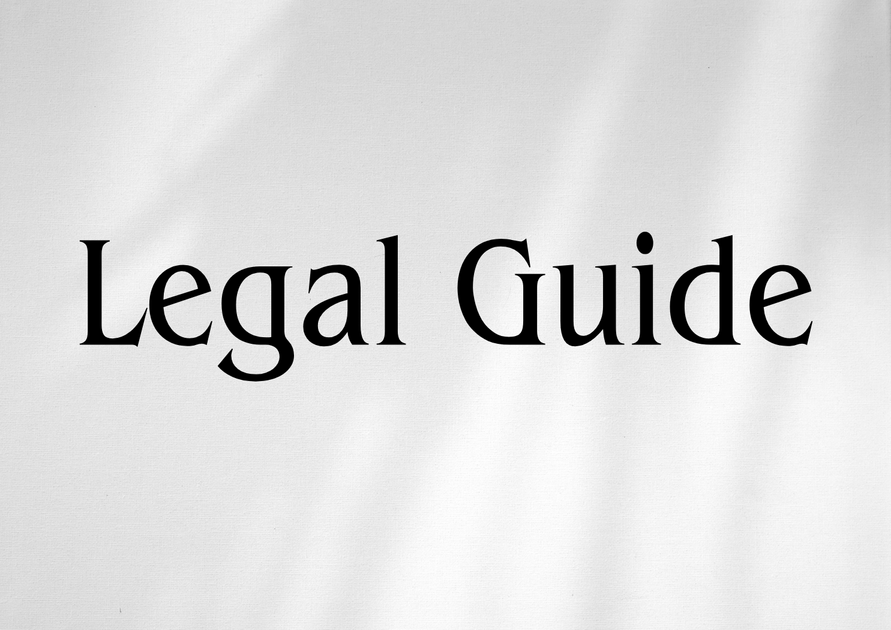Introduction
In today’s rapidly evolving MENA business landscape, Saudi Arabia has emerged as a pivotal marketplace, drawing significant attention from investors, multinational corporations, and regional enterprises. As commercial activities intensify, so does the risk of business disputes, ranging from contractual disagreements to regulatory conflicts. The ability to efficiently resolve these disputes is critical for protecting business interests and ensuring compliance with increasingly complex legal regimes across the Gulf, especially when cross-border transactions involve stakeholders from the UAE.
This article provides an in-depth analysis of the legal processes and remedies available for business disputes in Saudi Arabia, with a clear focus on practical guidance for UAE entities operating across the region. We examine statutory frameworks, procedural mechanisms, and recent updates to Saudi dispute resolution, drawing out implications for business leaders, in-house counsel, and compliance teams. With the recent introduction of legislative reforms, including updates to the Saudi Commercial Courts Law and the expansion of alternative dispute resolution (ADR) mechanisms, it is more important than ever for UAE-based organizations and their advisors to stay well-informed and proactive.
For UAE stakeholders, understanding the nuances of Saudi dispute resolution unlocks strategic risk mitigation, compliance assurance, and smoother commercial operations in one of the GCC’s most dynamic economies. This article delivers actionable insights from a consultancy perspective, helping you anticipate challenges and leverage opportunities arising from both Saudi regulations and cross-border legal interplay.
Table of Contents
- Overview of Saudi Business Dispute Law
- Jurisdiction and Court Structure
- Key Legal Developments: Recent Laws and Regulatory Updates
- Litigation Process and Practical Considerations
- Alternative Dispute Resolution Options
- Compliance Best Practices for UAE and GCC Businesses
- Case Studies: Practical Scenarios and Outcomes
- Risks of Non-Compliance and Mitigation
- Conclusion and Future Outlook
Overview of Saudi Business Dispute Law
Key Statutory Frameworks
Business disputes in Saudi Arabia fall under several core statutes and regulations, including:
- Commercial Courts Law (Royal Decree No. M/93 of 1441H, effective October 2020)
- Securities Disputes Law (governing market and securities disputes)
- Arbitration Law (Royal Decree No. M/34 of 1433H)
- Enforcement Law (Royal Decree No. M/53 of 1433H)
These laws outline the forums, procedures, and remedies available to disputing parties. The Saudi legal regime is rooted in Sharia principles, but recent reforms have increasingly codified and modernized its dispute resolution architecture, aiming to enhance judicial efficiency, predictability, and investor confidence—crucial considerations for UAE-based clients engaged in cross-border business.
Saudi vs. UAE: Contrasts in Dispute Resolution Systems
| Aspect | Saudi Arabia | UAE |
|---|---|---|
| Legal Basis | Primarily Sharia-based, with codified commercial/statutory laws | Civil law, detailed federal legislation, with Sharia framework for certain matters |
| Key Court for Commercial Disputes | Commercial Courts, Board of Grievances | Civil and Commercial Courts, DIFC/ADGM for international disputes |
| ADR Support | Expanding through mediation, reconciliation, and arbitration law reforms | Advanced ADR ecosystem, incl. DIAC, ADCCAC, court-annexed mediation |
| Enforcement of Foreign Judgments | Subject to bilateral treaties and reciprocity | More established; New York Convention and regional treaties |
Scope of ‘Business Dispute’ under Saudi Law
Saudi law broadly covers commercial disputes arising from sales contracts, agency, franchises, partnerships, construction, services, intellectual property, and regulatory compliance. The Commercial Courts Law applies to civil and commercial matters, save for public law issues and insolvency (governed separately). For UAE entities, it is vital to assess whether a proposed Saudi contract will be subject to local or international dispute regimes—an area for early legal review.
Jurisdiction and Court Structure
Commercial Courts and Specialized Forums
Saudi Arabia’s commercial courts have exclusive jurisdiction over business, commercial, and civil disputes involving merchants or registered businesses, including cross-border issues where a Saudi entity or the transaction’s subject matter has a nexus to KSA. For securities and financial disputes, the Capital Market Authority’s Committee for the Resolution of Securities Disputes (CRSD) may have jurisdiction.
Cases outside the commercial courts’ scope—such as administrative proceedings, employment disputes, or public law challenges—are heard by specialist divisions and the Board of Grievances (Diwan Al Mazalim).
Stages of Judicial Proceedings
- First Instance: Commercial Courts (original jurisdiction)
- Appeal: Appellate Commercial Courts
- Cassation: Supreme Court (on points of law or Sharia principles)
Each stage is governed by strict formalities, deadlines, and documentary requirements. Given that court proceedings are primarily in Arabic, UAE litigants must ensure access to qualified local representation or partnership with experienced Saudi counsel.
Visual Suggestion
Process Flow Diagram Suggestion: Diagram showing the sequential flow from lower Commercial Court through Appeal and up to the Supreme Court, with notations for specific procedural steps like service, evidence phases, and interim relief.
Key Legal Developments: Recent Laws and Regulatory Updates
1. Commercial Courts Law (Royal Decree No. M/93 of 2020)
The overhaul of the Saudi commercial courts brought a raft of procedural and substantive innovations designed to speed up litigation, encourage settlement, and strengthen case management. Businesses now benefit from increased digitalization (including the ‘Najiz’ portal for e-filings), enhanced powers for judges (such as summary judgment capability), and clearer procedures regarding evidence and appeals.
Some highlights relevant to UAE businesses:
- E-Filing and Online Services: All case management is now digitalized, improving access and transparency.
- Summary Proceedings: Courts can issue judgments in straightforward cases without a full trial process.
- Mediation Orders: Judges can direct cases to preliminary mediation, encouraging early dispute settlement.
- Limitation Periods: Strict timelines now apply for filing actions and appeals—for example, three years for most commercial claims unless stayed by negotiations or court order.
2. Arbitration Law (Royal Decree No. M/34 of 2012) and ADR Expansion
The modern Arbitration Law aligns with the UNCITRAL Model Law, providing a robust framework for private dispute resolution. Arbitral awards are enforceable in Saudi courts, subject to public policy (Sharia) review. Recent years have seen rapid growth in mediation and reconciliation centers, with the Ministry of Justice supporting institutional arbitration (e.g., SCCA) and court-annexed mediation pilots.
3. Enforcement Law (Royal Decree No. M/53 of 2012)
The Enforcement Law prescribes swift and effective mechanisms for executing domestic and certain foreign judgments. Specialized enforcement courts have authority to impose asset freezes, travel bans, and seizure of movable and immovable property to satisfy court awards—key considerations for UAE creditors seeking asset recovery in the Kingdom.
Comparison Table: Legal Updates and Practical Impact
| Regulatory Area | Old Regime | Current/Updated Law | Practical Impact for UAE Entities |
|---|---|---|---|
| Case Filing | Manual, in-person filings common | Mandatory e-filing via Najiz | Easier cross-border filings; transparency; less travel required |
| Summary Judgment | Rarely applied, no clear process | Available for simple cases | Faster resolution of straightforward disputes |
| Arbitration Enforcement | Uncertain, ad hoc processes | Codified, UNCITRAL-aligned law | Improved confidence in Saudi awards |
| Interim Relief | Limited, discretionary | Clearer criteria and process | Greater predictability and planning for risk |
Litigation Process and Practical Considerations
Stages of Commercial Litigation in Saudi Arabia
- Pre-Filing Negotiation and Settlement: Strongly encouraged, and courts may require evidence of attempted mediation before admission.
- Statement of Claim: Filed electronically, in Arabic, with supporting documentary evidence.
- Defence and Counterclaims: Defendant must respond within set deadlines, raising all potential counterclaims.
- Preliminary Hearing: Procedural directions given; court may order referral to mediation.
- Evidence and Submissions: Exchange of written briefs and documents; witness testimony rarely used unless ordered.
- Judgment and Reasons: Court issues written decision, usually within months for routine matters.
- Appeal Process: 30-day strict limit for lodging appeals; appellate review usually on matters of fact and law.
Key Deadlines and Requirements
- Strict filing and response timelines—missing a procedural deadline risks default judgment.
- All documentation must be formally translated and attested where applicable.
- Court fees can be substantial and vary by claim size.
Compliance Checklist Suggestion:
- Confirm Saudi law jurisdiction/venue in contracts
- Assign local legal counsel or representative
- Prepare digital evidence and Arabic translations
- Track and meet all Najiz portal deadlines
- Budget for court fees and related costs
Professional Insight
UAE businesses must factor in the differences in approach between Saudi and UAE courts, particularly in relation to documentary evidence (which dominates Saudi procedures), the limited use of discovery, and the centrality of Sharia public policy in judgment enforcement. Pre-dispute planning—such as audit trails, contract registration, and proactive legal review—is essential.
Alternative Dispute Resolution Options
Arbitration in Saudi Arabia
Arbitration is now regarded as a credible and enforceable route for commercial dispute resolution. The Saudi Center for Commercial Arbitration (SCCA), launched in collaboration with major international arbitral institutions, offers English-language proceedings and recognizes party autonomy in selecting rules, language, and seat, subject to Sharia principles.
Comparison Table: Litigation vs. Arbitration for UAE Parties
| Factor | Litigation | Arbitration (SCCA/ICC, etc.) |
|---|---|---|
| Duration | 6–24 months (variable) | 6–18 months (often faster for complex matters) |
| Confidentiality | Limited | High (closed sessions, non-public awards) |
| Enforcement | Domestic enforcement straightforward; foreign judgments subject to treaties | Arbitral awards enforceable under New York Convention (subject to Sharia) |
| Fees | Court fees based on claim value | Tribunal fees, institution/administration costs |
Mediation, Reconciliation, and Amicable Settlement
The Ministry of Justice and several private institutions offer ‘conciliation centers’ and structured mediation services. Larger claims or complex disputes may be referred to mediation prior to court acceptance, in line with ADR best practices. UAE parties should actively explore pre-litigation mediation, given its lower cost and speedier outcomes.
Consultancy Guidance
- Draft robust ADR clauses in contracts, specifying institution, seat, and process
- Pre-negotiate bilingual (Arabic and English) arbitration agreements to facilitate cross-border enforcement
- Maintain evidence of attempts at amicable settlement to satisfy Saudi court admissibility requirements
Compliance Best Practices for UAE and GCC Businesses
Risk Assessment and Due Diligence
- Conduct legal due diligence on potential Saudi partners, supply chains, and JV structures
- Ensure all business-critical contracts are registered and contain updated dispute resolution provisions compliant with Saudi law
- Consider insurance and local guarantees to fund potential legal or enforcement proceedings
Preventive Measures and Dispute Avoidance
- Standardize bilingual contracts to ensure clarity and reduce interpretation risk
- Document all corporate and commercial activity (including negotiations and amendments) and retain securely in digital format
- Designate trained compliance officers or local legal liaisons for ongoing Saudi regulatory updates
Strategy Table: Compliance Actions for UAE Businesses in KSA
| Compliance Area | Best Practice | Benefits |
|---|---|---|
| Contract Management | Bilingual, attested contracts; dispute clauses; periodic review | Reduces enforceability risks; facilitates litigation or ADR |
| Local Representation | Retain experienced Saudi legal advisors | Ensures procedural compliance; mitigates language barriers |
| Evidence Handling | Secure digital records of all transactions | Speeds up case preparation; enhances evidentiary credibility |
Case Studies: Practical Scenarios and Outcomes
Case Study 1: Vendor Dispute Over Non-Performance
Scenario: A UAE company enters into a supply contract with a Saudi distributor. Disputes arise over late deliveries and payment delays. The contract specifies Saudi Commercial Courts’ jurisdiction but lacks an ADR clause.
Resolution Path: UAE claimant files online via Najiz, submits documentary evidence (e-mails, invoices, shipping documents) in Arabic. Saudi court orders mediation; failin mediation, matter proceeds to preliminary hearing. After verifying evidence, the court issues a summary judgment for damages. Defendant’s assets are traced via enforcement court and recovered.
Consultancy Insight: Early investment in bilingual contracts and clear dispute clauses expedites proceedings and reduces legal risk exposure.
Case Study 2: Joint Venture Dissolution
Scenario: An Emirati-Saudi JV faces deadlock on profit distribution and management control. The JV agreement contains an SCCA arbitration clause.
Resolution Path: Parties initiate arbitration at SCCA (English proceedings), submit contract, board minutes, and shareholder correspondence. Tribunal issues a final award confirming profit allocations and dissolving the JV. The award is enforced by Saudi enforcement court without further litigation, as the agreement met all formality requirements.
Consultancy Insight: Arbitration offers speed, confidentiality, and greater control for cross-border JV disputes—provided agreements are carefully drafted and regularly updated.
Risks of Non-Compliance and Mitigation
Key Risks for UAE Organizations Operating in Saudi Arabia
- Procedural Defaults: Failure to meet statutory deadlines or court requirements can lead to automatic dismissal or default judgment.
- Unregistered or Defective Contracts: Courts may limit or deny enforcement of unregistered or ambiguously worded contracts.
- Enforcement Blockages: Lack of properly attested and translated documents may frustrate recovery of assets or execution of judgments.
- Reputational and Regulatory Impact: Ongoing disputes or enforcement actions can trigger market, licensing, and reputational risks across the UAE and GCC.
Mitigation and Proactive Strategies
- Establish regular legal training for UAE and Saudi staff on local dispute and contract laws
- Appoint compliance leads to monitor legislative changes (e.g., via periodic MOJ bulletins)
- Use contractual penalty and indemnity clauses to incentivize performance and mitigate breach damages
Table: Penalty and Remedy Comparison
| Breach Type | Saudi Remedy | UAE Remedy |
|---|---|---|
| Non-payment | Damages, asset seizure, contract termination | Damages, interest, potential criminal complaint in serious cases |
| Lack of Delivery | Specific performance, termination, penalty clauses | Specific performance or damages, subject to contract terms |
| Fraud or Dishonest Conduct | Void transaction, damages, reporting to authorities | Rescission, damages, criminal proceedings |
Conclusion and Future Outlook
The legal landscape for business dispute resolution in Saudi Arabia is undergoing steady modernization, with a clear trajectory toward increased transparency, flexibility, and cross-border enforceability. For UAE businesses engaging with Saudi partners—or operating wholly owned subsidiaries within the Kingdom—deep strategic awareness of jurisdictional differences, key legal reforms, and procedural obligations is critical.
Looking ahead to 2025 and beyond, the convergence of Saudi laws with global best practices signals expanded opportunities for regional collaboration, but also underscores the need for robust compliance systems and legal risk planning. UAE entities will benefit by:
- Regularly reviewing and updating contract templates, especially for dispute resolution and ADR provisions
- Training staff and managers on cross-border legal differences and new legislative updates
- Developing a rapid response plan for unforeseen disputes, involving both local and cross-border counsel
By staying informed of regulatory changes and embracing proactive compliance strategies, UAE businesses can protect their interests while capitalizing on the dynamic potential of Saudi commercial markets.
Professional Recommendations
- Align contract and dispute management policies with both UAE and Saudi regulatory requirements
- Leverage local expertise and partnerships for efficient navigation of Saudi legal systems
- Engage in regular scenario planning with legal advisors to anticipate new legal or regulatory risks in both states
As the region continues its economic transformation, legal preparation, agility, and compliance will define those businesses best positioned for continued success in cross-border operations.



